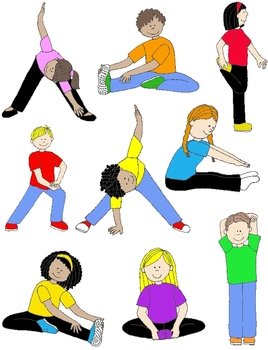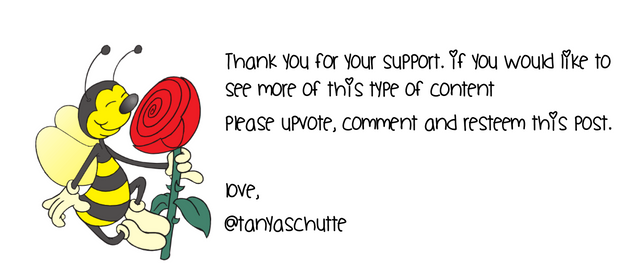ADHD: Children and Adults
I don't know about you but if you are either a teacher or a parent of a child who has ADHD you most likely also have your own opinion on this, but lets start at the beginning.
What is ADHD?
ADHD is an acronym for Attention Deficit and Hyperactivity Disorder.In the past we also knew it as ADD (Attention Deficit Disorder) but now a days they have grouped everything under ADHD with three subtypes:
- Inattentive ADHD (Formerly know as ADD)
- Hyperactive-Impulsive ADHD
- Combined ADHD
http://www.webmd.com/add-adhd/guide/types-of-adhd
Let me shortly elaborate more on the types of ADHD
- Inattentive ADHD are those learners who struggle to pay attention, to listen, to follow instructions. They are easily distracted.
- Hyperactive-Impulsive ADHD are those learners who screams out an answer without thinking, they can't sit still. They always seem to be on the run.
- Combined ADHD are those learners who show signs of Inattentive ADHD and Hyperactive-Impulsive ADHD. This is also the most common type being diagnosed now a days.
You can read more about this at: http://www.webmd.com/add-adhd/guide/types-of-adhd.
How is ADHD treated?
Most of the time doctors treat ADHD by prescribing any of the ADHD medication (Ritalin etc.)
Some doctors first recommend adapting a learners diet. Cut out certain food, sweets, food colors etc. before they go the extreme route of putting them on medication.
BUT..
Are all the learners, whom are diagnosed with ADHD, truly ADHD?
I know about a school where the teachers tell the parents that their child is ADHD, without going through the proper channels, and then telling them that they will not pass the child if they, the parents, don't put the child on ADHD medication.
No teacher has the right to "threaten" parents with their child's future so that they must put them on ADHD medication.
An Educational Psychologist I work closely with at school made the following comment a few weeks ago:
"Only a small amount of learners who are on ADHD medication is drinking it because they truly have ADHD, the other group is on ADHD medication for the sake of there parents and/or the teachers. " Especially at the above mentioned school.
I nearly had a fit when someone asked me a little while ago if my four year old has ADHD because he was running around and teasing his sister etc. He is a typical 4 year old boy who loves to play and run around. Yes, he is sensitive to green, orange and red food coloring, but at least we know that now,and have adapted his diet accordingly, and we won't find it out when he has to go to school.(I am definitely not sending him to the above mentioned school, since I know they will persist that we put him on ADHD medication.)
As I teacher I can understand that you want a peaceful class, where everyone sit still and listen, BUT how can you expect from a 5 year old to sit still for nearly 8 hours. That is IMPOSSIBLE! Rather channel their excitement and energy into activities that is educational acceptable.
Here is a few tips on managing ADHD learners in your class:
Make them your workers, the ones handing out the books, running the chores. (Most of them can't sit still for very long so this will constructively channel their energy. (Used the call them my "Worker bees" when I taught Grade 3's)

If they seem fidgety let all the learners get up and do some stretching exercies or any gross motor or fine motor exercises. You can incorporate math here (Ex. Hold the stretch while counting in 2's from 0 to 40. etc.)

3.Seat the learners away from the windows and doors, where there attention can easily be distracted. Also seat the learner as close to you as possible, since you can easily see when they are distracted, is becoming fidgety etc.
4.Make the lesson as interesting as possible. Use visual clues (charts, powerpoints etc.)
- Don't "overload" the learner with instructions. Give them one at a time. This ensures you that they have heard what you said and can't get confused that easily.
How do you manage your ADHD learners in your class?
The above tips are just few you can use, but please leave your tips in the comments so we can assist each other.
Are you an adult with ADHD?
I recently realized that maybe I have had ADHD my whole live. But ADHD wasn't a go to diagnosis when I was little. Over the years I have learned to manage in a big room, learn to sit still, learned to give attention when needed. Yes it is not always possible but since I can remember the teachers struggled to hold my attention. I struggled to sit still, and usually got distracted by any sound that was different from the sounds generally heard in the classroom.
How are you as adult managing and surviving in today's work environment. Are you on any medication? What strategies are you using to survive and make working easier.
Please comment your tips/advice/strategies on living with/managing ADHD.
Interesting reads:
https://www.helpguide.org/articles/add-adhd/teaching-students-with-adhd-attention-deficit-disorder.htm
https://childdevelopmentinfo.com/learning/learning_disabilities/teacher/
http://www.kellybear.com/TeacherArticles/TeacherTip49.html
http://www.ldonline.org/article/5911/




Thanks for this post. Your practical suggestions are really helpful, and I think you've found great ways to work with your ADD learners and give them positions they can be proud of in the classroom.
I worked extensively with a homeschooling family last year with a hyperactive-impulsive ADD 12-year-old who unfortunately didn't have teachers like you, and was shamed in his early school experiences for who he was. The biggest changes for us came after 90% eliminating sugar from his diet, which I could write a whole post about... Actually, I might go do just that. Also, similar to your advice, definitely having some rigorous physical activity before doing any kind of mental work helped a lot.
I wrote more about working with this youth and some key learnings that came up in these personal stories:
Breaking through stuckness
Letting People Make Their Own Mistakes and Supporting them Afterwards
Oh, and ANIMALS! Walking dogs at the shelter was the most healing thing for this youth, though for reasons more complicated than just ADD.
This also shows that teachers can make or break a learner, which is one of the saddest parts of teaching. I think, in almost half of these children's' cases, if you control their diet and add physical activities we can manage them. When I just began teaching I had a boy in my class who also had hypercative-impulsive ADD. He was a foster child, but was lucky enough to be placed in the care of one of my fellow teachers. So his eating habits etc was controlled. He was also an amazing long distance runner, so whenever he became fidgety we used to send him to run around the track field(luckily my class was next to it). This helped a lot and he came back refocused and class could continue.
Did you try horse therapy with him to?
Yes, teachers have a BIG responsibility, far bigger than many realize. I mean, how many kids spend more time in the class room and with their teachers than with their parents and family. I also get why it would be really frustrating as a teacher with 25+ students to have someone who seems to be acting out "disrupting" your class, especially if you've got 100+ students in a day, you're working long days, and you're not well-paid or well-respected for all the extra work that is happening outside of class. My hats off to public school teachers, I could not do it.
We did not try horse therapy, but I think he's in a summer camp where he might be able to connect with horses right now. Maybe I'll write a post about walking dogs, there's a lot in there to unpack. This little human is an adoptee from birth, so maybe some interesting parallels with the foster youth you mention. In his case, there is also a way in which he identifies with pitbulls because they have a bad rep but are actually very sweet, and, I think, identifies with shelter dogs because they need a home. He did very well when put in a position of giving care, focusing on the dogs' needs with unconditional love. I think part of it too, specifically in relating to ADD is seeing the animals' unbridled energy, reflecting his own energy as natural and having that affirmation and validation that he's not totally crazy for having a different body and learning style than what he's being told in so many ways is "normal."
I think most of the children are failed by the system. There are teachers/people who take into consideration everything that child has gone through and who then works with that to help that child. Others just see it as the child is acting out and then labels them as naughty and disruptive. Yes, you do get children who doesn't have a "past" and who is just naughty but one must make double sure that that is the case before reacting on the behavior.
Animals play such an important role in the emotional development of learners. You should write that article, I would love to read it.
Very informative . Such a pity that some people do not go through the proper channels and just scream ADHD if a child is a bit too awake for their liking- will resteem
Thanxs @anneke. This happens way to often and some of the doctors are just as guilty. They prescribe the medication without asking questions.
It's true. Dietary changes and herbal supplements should definitely be tried before any pharmaceuticals. I saw big changes weening a hyperactive-ADD kid off a sugar addiction. I also made sure he got a consultation and herbal formula from an herbalist friend, which helped a lot too once he started taking it before food 3x/daily.
Exactly - so sad
just watching